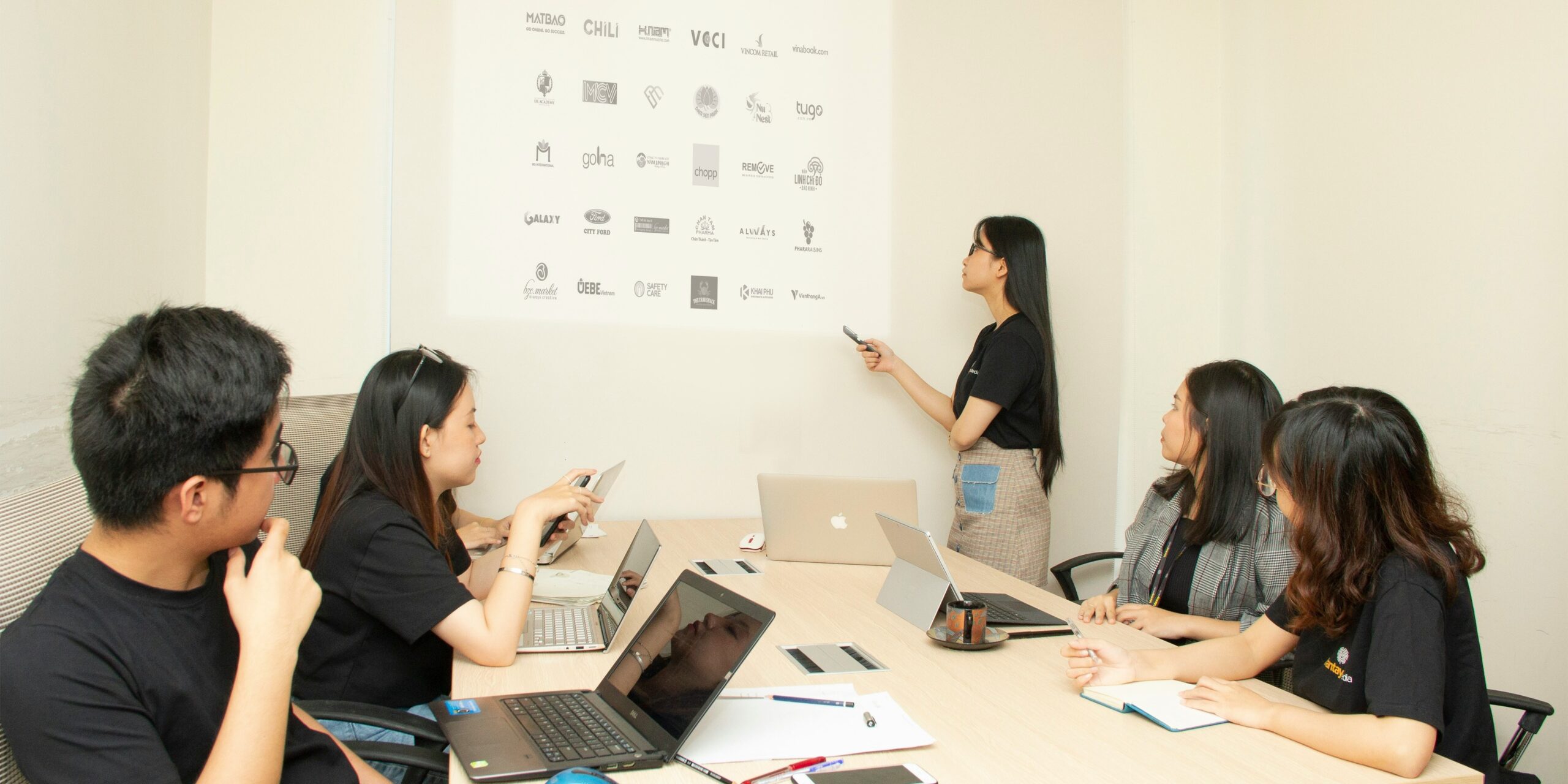Effective leadership plays a pivotal role in the growth and development of individuals within an organization. It goes beyond just managing tasks and processes; it involves nurturing and empowering employees to reach their full potential. This journey of developing people is multifaceted and challenging, requiring leaders to possess a range of skills and strategies. In this article, we will explore the importance of leadership in people development, the complex nature of the leadership journey, key skills required for effective leadership, strategies for developing people, and measuring the impact of leadership on individual and team growth.
Understanding the Importance of Leadership in People Development
Leadership and employee growth go hand in hand. When leaders prioritize the development of their team members, they create a nurturing environment that fosters innovation, collaboration, and productivity. Effective leaders understand that investing in people leads to higher engagement, job satisfaction, and ultimately, organizational success.
Leadership is not just about giving orders and delegating tasks. It is about inspiring and empowering individuals to reach their full potential. A leader who is committed to people development understands the unique strengths and talents of each team member. They take the time to identify areas for improvement and provide the necessary resources and opportunities for growth.
By investing in the growth and development of their employees, leaders create a culture of continuous learning. They encourage their team members to embrace new challenges and take on projects that push their boundaries. This not only enhances individual skills but also promotes a sense of achievement and personal growth.
The Connection Between Leadership and Employee Growth
Leadership plays a critical role in shaping the growth and development of employees. A skilled leader inspires and motivates individuals to stretch their limits, challenging them to step out of their comfort zones and explore new territories. Through guidance, mentorship, and constructive feedback, leaders provide the necessary support and opportunities that enable employees to develop new skills and enhance their professional capabilities.
Effective leaders understand that employee growth is not a one-size-fits-all approach. They tailor their leadership style to meet the unique needs of each individual. They take the time to understand their team members’ career aspirations, strengths, and areas for improvement. By doing so, leaders can provide personalized development plans that align with the individual’s goals and aspirations.
Furthermore, leaders who prioritize employee growth create a culture of continuous improvement. They encourage their team members to seek out learning opportunities, whether it be through training programs, workshops, or conferences. By fostering a growth mindset, leaders inspire their employees to constantly expand their knowledge and skills, which ultimately benefits both the individual and the organization.
The Influence of Effective Leadership on Team Performance
A strong leadership presence positively impacts team performance. Leaders who communicate clear expectations, set achievable goals, and foster a culture of trust and collaboration empower their team members to excel. When individuals feel valued and supported by their leaders, they become more invested in their work, leading to improved team dynamics and higher overall performance.
Effective leaders understand the importance of creating a positive work environment. They promote open communication, encourage collaboration, and recognize the contributions of each team member. By fostering a sense of belonging and teamwork, leaders create a cohesive unit that is motivated to achieve common goals.
Furthermore, effective leaders lead by example. They demonstrate the behaviors and qualities they expect from their team members. By modeling professionalism, integrity, and a strong work ethic, leaders inspire their employees to do the same. This creates a culture of excellence and high performance, where everyone strives to deliver their best work.
In conclusion, leadership plays a crucial role in people development. By investing in the growth and development of their employees, leaders create a culture of continuous learning, foster innovation and collaboration, and ultimately drive organizational success. Effective leaders understand that their success is directly tied to the success of their team members, and they are committed to supporting their growth and professional development.
The Complexity of the Leadership Journey
Embarking on the path of leadership is not for the faint of heart. Leaders face numerous challenges and must navigate through a diverse range of responsibilities and roles. From managing conflicts and making tough decisions to inspiring and motivating individuals, the journey of a leader is multifaceted and ever-evolving.
Navigating the Challenges of Leadership
Leadership comes with its fair share of challenges. Leaders must learn to effectively navigate workplace politics, mediate conflicts, and make decisions that impact the entire team. By embracing resilience, adaptability, and a growth mindset, leaders can overcome these challenges and emerge stronger.
The Multifaceted Nature of Leadership Roles
Leadership roles are diverse and encompass a wide range of responsibilities. A leader needs to be an effective communicator, a strategic thinker, a mentor, and a team builder. Leaders must be able to adapt their leadership style based on the needs of their team and the situation at hand. This versatility is crucial for successfully leading and developing people.
Key Leadership Skills for People Development
Leaders need to possess a set of essential skills to effectively develop people within their organization. These skills serve as the foundation for building strong relationships, fostering growth, and inspiring individuals to reach their full potential.
Communication: The Foundation of Leadership
Effective communication is at the core of successful leadership. Leaders must be able to articulate their vision, delegate tasks, and provide feedback in a clear and concise manner. By actively listening and exchanging ideas with their team members, leaders can foster collaboration and create an environment that encourages continuous learning and improvement.
Empathy and Understanding in Leadership
Empathy is a fundamental skill that leaders must possess to develop people. By understanding the unique strengths, weaknesses, and aspirations of each individual, leaders can personalize their approach to maximize employee engagement and growth. Empathetic leaders create a safe and supportive environment that encourages individuals to take risks and explore new opportunities.
Strategies for Leaders in Developing People
Developing people requires a strategic approach from leaders. They need to implement targeted initiatives and programs that support employee growth and create a culture of continuous learning and improvement.
Implementing Personal Development Plans
Leaders can help individuals identify their strengths, areas for improvement, and career goals by implementing personal development plans. These plans outline specific actions and resources required to support an individual’s professional development journey. Through regular check-ins and mentoring, leaders can track progress and provide guidance to ensure individuals are on the right path.
Encouraging Continuous Learning and Improvement
A learning culture is a hallmark of organizations that prioritize people development. Leaders can create opportunities for individuals to acquire new skills and knowledge through training programs, workshops, and job rotations. By encouraging and supporting continuous learning, leaders show their commitment to their team members’ growth and development.
Measuring the Impact of Leadership on People Development
It is essential for leaders to regularly evaluate the effectiveness of their people development efforts. By measuring the impact of leadership on individual and team growth, leaders can make data-driven decisions and refine their strategies accordingly.
Evaluating Employee Satisfaction and Engagement
Employee satisfaction and engagement metrics are valuable indicators of effective leadership. Regular surveys and feedback sessions facilitate open communication between leaders and their team members. By understanding the factors that drive employee satisfaction and engagement, leaders can identify areas for improvement and implement targeted initiatives to enhance people development efforts.
Assessing the Progress of Individual and Team Performance
Leaders need to assess individual and team performance to gauge the effectiveness of their development strategies. Setting clear performance objectives, conducting regular performance reviews, and providing constructive feedback are essential in tracking growth and identifying opportunities for further development.
The leader’s role in developing people is undoubtedly a complex journey. However, with the right mindset, skills, and strategies, leaders can inspire and empower individuals to achieve their full potential. By prioritizing people development, leaders foster a culture of continuous improvement and drive organizational success.
At Learnexus, we understand the importance of leadership in developing people. Our comprehensive platform provides leaders with the tools and resources they need to nurture talent, drive growth, and create a learning culture within their organizations. Through personalized development plans, targeted training programs, and data-driven insights, Learnexus empowers leaders to unlock the potential of their team members. Embark on your leadership journey with Learnexus and start making a meaningful impact on the growth and development of your people.




